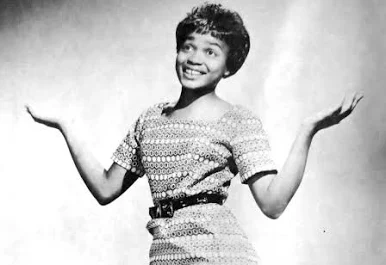From Nanny to Number One
From Nanny to Number One: The Unexpected Rise of Little Eva
Released by Dimension Records, “The Loco-Motion” became the label’s first single and soared to No. 1 on the Billboard Hot 100 on 25 August 1962. It was also a hit in the UK and South Africa, ranking among the year’s most successful singles.
A Song That Invented Its Own Dance
What made “The Loco-Motion” truly unique was its lyrical structure—it described the steps of a dance that didn’t yet exist. Inspired by Eva’s playful movements around the house, Goffin crafted lyrics that encouraged listeners to “swing your hips,” “jump up,” and “jump back.” The dance itself was later created to match the song, making it one of the earliest examples of a line dance in pop music.
Musical Craftsmanship
The recording featured:
- Carole King on piano and backing vocals.
- The Cookies, a girl group, on harmonies.
- Artie Kaplan on saxophone, delivering a memorable solo.
The production was mono, requiring careful layering of each musical element—a testament to the ingenuity of early 1960s studio work.
Legacy and Covers
“The Loco-Motion” is one of the few songs to reach the U.S. Top 3 in three different decades:
-
1962 – Little Eva (No. 1)
-
1974 – Grand Funk Railroad (No. 1)
- 1988 – Kylie Minogue (No. 3)
Though Little Eva never replicated the success of her debut single, she continued to perform until her retirement in 1971 and returned in the 1980s. The success of ‘The Loco-Motion’ catapulted her into the limelight, allowing her to tour and perform extensively. She passed away in 2003, but her contribution to pop music remains unforgettable.
Cultural Impact
“The Loco-Motion” wasn’t just a hit—it was a cultural phenomenon. It captured the spirit of early 1960s youth culture: fun, spontaneous, and full of rhythm. The song’s success also highlighted the power of serendipity in music History—a babysitter with a dream, a couple of songwriters with a melody, and a dance that got the whole world moving.
“The Loco-Motion” has been covered by a wide range of artists over the decades and across genres. Here are some of the most notable and interesting versions:
Major Charting Covers
- Little Eva (1962) – The original version, which hit No. 1 on the Billboard Hot 100.
- Grand Funk Railroad (1974) – A rock-infused version that also reached No. 1 in the U.S
- Kylie Minogue (1988) – A dance-pop rendition that reached No. 3 in the U.S. and became a global hit.
Other Notable Covers
- The Vernons Girls (1962) – A British girl group whose version charted in the UK.
- Dee Dee Sharp (1962) – Although she initially declined the song, she later recorded her own version.
- The Ventures (1962) – Instrumental surf rock version.
- Shelley Fabares (1962) – Actress and singer known for her teen pop style.
- The Chiffons (1963) – Popular girl group who added their signature harmonies.
- Pat Boone (1964) – Crooner-style interpretation.
- Czesław Niemen & Niebiesko-Czarni (1964) – Polish rock version.
- Ray Brown & The Whispers (1966) – Australian pop group.
- The Bunch (1972) – Folk-rock collective including Sandy Denny.
- Carole King (1980) – The song’s co-writer performed her own version.
- Mike Love (1983) – Beach Boys Member’s solo take.
- Black Lace (1984) – British novelty pop band.
- Bruce Springsteen (1976) – Performed live as a duet with Carole King during her Beacon Theatre residency.
International and Obscure Versions
- Los Gatos Negros (1963) – versión en español.
- Električni Orgazam (1983) – Yugoslavian punk/new wave band.
- Birgitta Wollgård & Salut (1973) – Swedish pop group.
- Computer [FR] (1977) – French electronic interpretation.
- Hans Edler (1978) – Swedish experimental artist.
- Ritz [GB] (1979) – British disco group.
